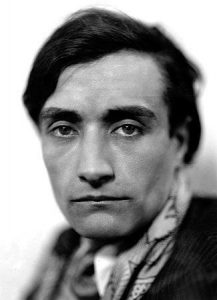
Amidst all the reading and writing, playing, viewing, listening, thinking about the regard – high and low – that greets what we do as well as that afforded to what we merely like and enjoyed, a few words from Artaud:
True culture operates by exaltation and force, while the European ideal of art attempts to cast the mind into an attitude distinct from force but addicted to exaltation. It is a lazy, unserviceable notion which engenders an imminent death. If the Serpent Quetzalcoatl’s multiple twists and turns are harmonious, it is because they express the equilibrium and fluctuations of a sleeping force; the intensity of the forms is there only to seduce and direct a force which, in music, would produce an insupportable range of sound.
The gods that sleep in museums: the god of fire with his incense burner that resembles an Inquisition tripod; Tlaloc, one of the manifold Gods of the Waters, on his wall of green granite; the Mother Goddess of Waters, the Mother Goddess of Flowers; the immutable expression, echoing from beneath many layers of water, of the Goddess robed in green jade; the enraptured, blissful expression, features crackling with incense, where atoms of sunlight circle–the countenance of the Mother Goddess of Flowers; this world of obligatory servitude in which a stone comes alive when it has been properly carved, the world of organically civilized men whose vital organs too awaken from their slumber, this human world enters into us, participating in the dance of the gods without turning round or looking back, on pain of becoming, like ourselves, crumbled pillars of salt.
In Mexico, since we are talking about Mexico, there is no art: things are made for use. And the world is in perpetual exaltation.
To our disinterested and inert idea of art an authentic culture opposes a violently egoistic and magical, i.e., interested idea. For the Mexicans seek contact with the Manas, forces latent in every form, unreleased by contemplation of the forms for themselves, but springing to life by magic identification with these forms. And the old Totems are there to hasten the communication.
How hard it is, when everything encourages us to sleep, though we may look about us with conscious, clinging eyes, to wake and yet look about us as in a dream, with eyes that no longer know their function and whose gaze is turned inward.
This is how our strange idea of disinterested action originated, though it is action nonetheless, and all the more violent for skirting the temptation of repose.Every real effigy has a shadow which is its double; and art must falter and fail from the moment the sculptor believes he has liberated the kind of shadow whose very existence will destroy his repose.
Like all magic cultures expressed by appropriate hieroglyphs, the true theater has its shadows too, and, of all languages and all arts, the theater is the only one left whose shadows have shattered their limitations. From the beginning, one might say its shadows did not tolerate limitations.
Our petrified idea of the theater is connected with our petrified idea of a culture without shadows, where, no matter which way it turns, our mind (esprit) encounters only emptiness, though space is full.
But the true theater, because it moves and makes use of living instruments, continues to stir up shadows where life has never ceased to grope its way. The actor does not make the same gestures twice, but he makes gestures, he moves; and although he brutalizes forms, nevertheless behind them and through their destruction he rejoins that which outlives forms and produces their continuation.
The theater, which is in no thing, but makes use of everything- -gestures, sounds, words, screams, light, darkness-rediscovers itself at precisely the point where the mind requires a language to express its manifestations.
And the fixation of the theater in one language–written words, music, lights, noises–betokens its imminent ruin, the choice of any one language betraying a taste for the special effects of that language; and the dessication of the language accompanies its limitation.
For the theater as for culture, it remains a question of naming and directing shadows: and the theater, not confined to a fixed language and form, not only destroys false shadows but prepares the way for a new generation of shadows, around which assembles the true spectacle of life.
From the preface of The Theater and Its Double by Antonin Artaud, Grove press, 1958


